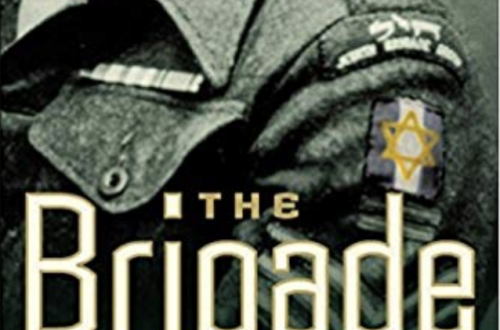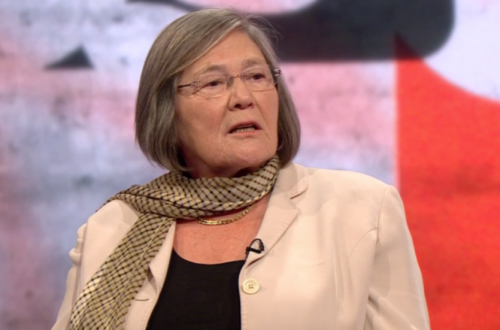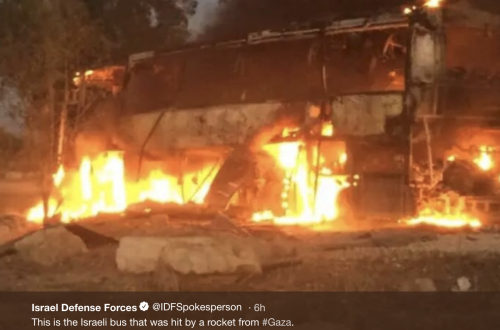This is a guest post by Sackcloth and Ashes.
Over the past decade the British armed forces have become far more prominent in public life, due to the wars in Iraq and Afghanistan, and popular respect for the courage servicemen and women have demonstrated in both conflicts. Soldiers, sailors, marines and airmen have parades to welcome them home from their overseas tours, and are feted both at popular awards ceremonies (such as the ‘Millies’) and at major sporting events (notably the FA Cup Final and the Six Royal Wootton Bassett was renamed because its citizens regularly turned out to honour the repatriated dead brought home via RAF Lyneham. Military charities such as Help For Heroes have done sterling work raising funds for wounded service personnel, and media coverage has drawn helpful attention to the Ministry of Defence’s failures both to equip the forces properly, and also to look after their dependents (as demonstrated by the scandal four years ago on living conditions for military families).
On Saturday there was national commemorations for ‘Armed Forces Day’ – a recent introduction to our annual calendar which is intended to honour current service personnel and veterans. The fact that our armed forces and those who serve with them are no longer ‘out of sight and out of mind’ is a positive development – up to a point.
Unless you are either an Islamist fanatic or one of their allies of convenience on the far-left, you will probably consider the popular respect given to the armed forces to be long overdue. Guardianistas may claim that this attitude encourages war-mongering and militarism, but the intelligent man and woman knows that it is possible to hate war and love the warrior. It is therefore only right to see members of the public participate in Armed Forces Day, and also to wear their red poppies around Remembrance Day.
However, we should be careful that our reverence for the military may translate into an uncritical attitude towards the admirals, generals and air marshals who command it. The former attitude is commendable, but the latter attitude is dangerous. For if our two most recent wars have revealed serious failings in the decisions made by our political elite, then the top brass themselves should not escape scrutiny or censure either.
HP readers – particularly those without any military experience – will hopefully appreciate three points about those who serve. The first is that it is only right that those who volunteer to fight for this country should feel that they belong to the society which they protect. Military resentment against civilians who ignore or slight ‘Tommy’ in peacetime and offer lip-service to their courage in war is not new, as Rudyard Kipling himself observed. Our fighting men and women are citizens, not janissaries.
Secondly, whilst it is clear that a minority of military personnel have committed atrocities and abuses (notably the Camp Breadbasket and Baha Mousa cases) the vast majority of of them have acquitted themselves honourably in Iraq and Afghanistan, both in combat operations and also in their efforts to rebuild countries devastated both by war and the tyranny of (respectively) the Thirdly, those that have never seen combat should understand the burden placed on anyone who commands at any level – be it a Corporal in charge of an infantry section, or the Brigadier commanding a brigade. When waging a complex conflict against an adaptive and protean adversary, even the most diligent and conscientious NCO or officer is likely to have subordinates killed or wounded despite his or her best efforts to avoid casualties. It would be repulsive for some armchair critic to accuse the commander involved of being a butcher or a bungler.
However, the record of recent wars shows that to a disturbing degree senior officers of twostar rank and above – that essentially means anyone with the words ‘admiral’, ‘general’ or ‘air marshal’ in their rank – have collectively emerged unscathed from any criticism over military failures in Iraq and Afghanistan. The Chilcot Inquiry and the memoirs of both officers and officials involved in our wars show that those who lead our armed forces have committed serious errors of judgement on their watch.
The service chiefs are not to blame for the lack of strategic direction in Operations Telic and Herrick – that remains the fault of the country’s political leadership. But there are four failings that they should be held accountable for. The first is the fact that with both South-Eastern Iraq and Helmand British forces were committed to fulfil missions that stretched them to the limit. The Army in particular saw Telic and Herrick primarily as a means of demonstrating its utility to ministers, ensuring that its spending requirements would prevail over its rivals when it came to the next review of the defence budget (not that this trait was absent with its two rivals).
The second is that whilst the Navy, Army and RAF pay lip-service to the idea of ‘jointness’ – the principle of ensuring that all three services co-operate together to ensure success in operations – the leadership of all three is still infected by tribal loyalties, demonstrated by the squabbles surrounding the Strategic Defence and Security Review (SDSR) two and a half years ago. A truly ‘joint’ view amongst the Chiefs of Staff would have concluded that aircraft carriers are more versatile and flexible deliverers of airpower than land-based forces, but this has long been an anathema to the RAF, whose command structure is dominated by its ‘fast jet mafia’. The air marshals manoeuvred to kill maritime aviation in order to save Typhoon, and the absence of the Ark Royal was dearly felt when it came to Operation Ellamy, the NATO campaign over Libya in 2011.
The third is that careerism is as inherent amongst our uniformed politicians as it is amongst their civilian counterparts. As Sherard Cowper-Coles notes in his memoirs, counterinsurgency campaigning in Afghanistan requires continuity, but the Army’s corporate interest in ensuring that brigadiers got their chance for promotion meant that there was a constant turnover of command in Helmand, with deleterious results. We have not fought one war in Southern Afghanistan, but ten separate campaigns. Strategy is supposed to drive actions at the tactical level (or, in plain language, at the level where our forces are shooting at an enemy), but with Herrick the latter is true.
The fourth is the institutionalised myopia which is being promoted from the top, which discourages any sense of reflection about the lessons of recent conflicts, or which seeks (in a soft version of the ‘stab-in-the-back’ myth) to deflect all blame for operational failure on the politicians. This attitude was illustrated by a speech which the current Chief of the Defence Staff, General Sir David Richards, at the Royal United Services Institute six months ago. Not once during his speech did Richards even mention Iraq, or acknowledge that Britain bungled its occupation of the four South Eastern provinces of the country. His refusal to even refer to lessons learned from a conflict in which 179 service men and women were killed – or even to acknowledge them – is not only an insult to Telic veterans, but it highlights the lack of self-reflection at the top of the military hierarchy. Generals, Admirals and Air Marshals will not learn from their mistakes if they lack the moral courage to admit that they made them.
Why has this happened? Firstly, our top brass have been adept players of the media, and have easily exploited their uncritical backing from the press to push ministers around, and to ensure that the latter become the scapegoats for failure. General Sir Richard Dannatt stated four years ago that the Army in particular had been overstretched by concurrent battles for Basra and Lashkar Gar, but who was to blame? The former Defence Secretary John Reid told the Chilcot Inquiry that when he had asked during the spring of 2006 whether Britain’s armed forces had the means both to maintain its occupation of South-Eastern Iraq and to escalate its involvement in Afghanistan, the then-Chief of the Defence Staff, Air Chief Marshal Sir Jock Stirrup, told him unequivocally that they could. Either Reid is lying, or the brass (including Dannatt) made a monumental cockup. If the latter is true, then why is no one in parliament or the media asking questions about the abysmal advice they gave?
Secondly, as the national service generation dies out military service – either with the regulars or the reserves – has become increasingly rare, and this trend is likely to be exacerbated once the personnel cuts outlined in the SDSR come into effect. By my guesstimate, around 1% of the British population either serves with the armed forces, or has relatives serving with them. The result is that the military can acquire something of a mystique, and there can be an unwillingness to criticise it. This attitude is all well and good if one is chatting over a pint with a soldier or marine who has been to Afghanistan, a sailor returned from counter-piracy duties off the Somali coast, or a pilot explaining the pains he took to ensure that he did not accidentally bomb Libyan civilians whilst on his missions against Qaddafi’s thugs, but it is unwise to extend it to those in overall command, for the reasons sited above.
The third reason applies to the press and academia, two vital sources of scrutiny for public policymaking in any democracy. The system of embedding reporters allows the military hierarchy to exert emotional blackmail against them – it is hard for a journalist to ask hard questions about the war effort when he or she has just seen a patrol of very brave men (and women) fight off a Taliban ambush. Specialist defence correspondents (like Christopher Bellamy and the late John Keegan) have disappeared. Military commentary is either provided by has-beens like Max Hastings or complete neophytes. The Times, for example made the absurd decision five years ago to allow Martin Samuel, a sports journalist, to write about Afghanistan and the war on terror; Samuel may know about the offside rule, and he can tell us all why QPR’s relegation was inevitable, but it was painfully obvious that he knew sweet FA about war or defence.
In universities, the discipline of strategic studies has seen a steady decline since the end of the Cold War, due largely to the faddish notion that in the ‘post-modern’ security environment the study of how states use military power in support of their national interests is an anachronism. A survey of your local bookshop shows how popular military history is, but there is an inherent prejudice against this form of scholarship amongst academic practitioners, who tend at best to assume that it’s all ‘drums and trumpets’ nonsense, or at worst accuse the military historian of glorifying the phenomenon that he (or she) studies. Our scholars have forgotten the truism attributed to Trotsky – that we may not be interested in war, but war will continue to be interested in us.
As a consequence our collective respect for our fighting men and women means that the British public as a whole has given those that lead them a free pass. This is not a healthy state of affairs for society, or for our country. So whilst we should continue to treat with respect and sympathy those that have served in our forces – often at high personal cost – we should devote more scrutiny to the decisions that have been made by the top brass, rather than assume that they are automatically dictated by the interests of this country’s defence, or the wellbeing of their It is both pertinent and necessary to ask anyone with gold braid on their uniforms and peaked caps if they have ever compromised either of these objectives for the narrow interests of their own service or branch, or indeed for their own promotion and self-advancement.
Our country needs top brass who have a ‘joint’ understanding of defence, who are accountable for their decisions, and who have the integrity to stand by them.


